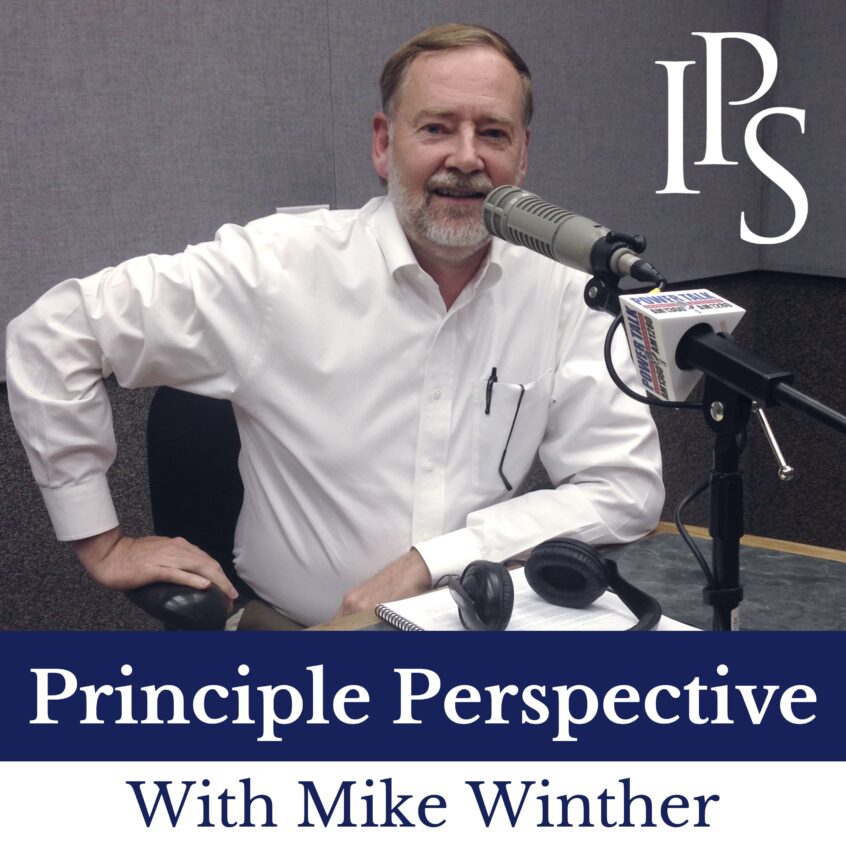LISTEN NOW
The study of economics is often viewed as a battle between two worldviews. Proverbs 11:1 underscores this, stating, “A false balance is an abomination to the Lord, but a just weight is his delight.” This verse not only condemns dishonesty but also accentuates the importance of integrity. This theme is a central focus in this lecture by Mike Winther on basic economic principles.
Economics becomes particularly fascinating when viewed in the context of this larger conflict. Mike presents a perspective distinct from the common narratives on energy policy, healthcare, prices, and recession found in the news. The Bible offers solutions to our current economic challenges, and Mike discusses the benefits of understanding and embracing a biblical worldview.
You’ll Learn:
- [00:41] Proverbs 11:1 The lord abhors dishonest scales. Accurate weights are his delight.
- [01:26] We are battling between honest weights and measures and dishonest weights and measures.
- [01:47] What if you or someone you knew had the solution to America’s healthcare crisis? Would it be important for society to know these solutions?
- [02:31] The Bible contains the economic solutions for all of our current problems.
- [03:35] Mike talks about why the biblical worldview isn’t taught frequently enough from the pulpit.
- [07:26] Parents need to be hands on with what their kids are being taught.
- [09:52] Economics is an evangelistic field of study. Every academic discipline is a field for evangelism.
- [10:59] The invisible hand is God.
- [11:53] Economics is really the rules of the house. Economics is the study of property. It’s the study of resources.
- [15:11] Are money issues moral issues?
- [16:54] Microeconomics is the study of economics related to a household or business.
- [17:23] Macroeconomics is the study of an entire economy. Economic laws and truths apply in both fields.
- [19:43] Mike talks about scarcity and supply and demand.
- [20:06] Capital is the key to the study of economics. It’s the means of production. It can also be excess production.
- [22:53] Excess production is profit.
- [23:48] There are two broad economic systems in the world. There’s the free market economy or laissez-faire. To be left alone or government hands off.
- [24:34] The other economic system is socialism. From each according to his ability to each according to his need. This implies a central pooling of resources.
- [25:36] The common pooling of resources is mandatory and forced.
- [27:11] Communism is a form of socialism. Karl Marx gives 10 ways on how to bring socialism to a system.
- [28:11] Eight of these points have to do with the abolition and infringement of private property.
- [31:25] The free market system is the only system compatible with God given rights.
- [36:20] Economic schools of thought. Keynesian economics is really socialist economics. It’s an economic model of government control.
- [37:01] The Austrian School of economics is the purest version of free market economics.
- [40:26] Who benefits from economic transactions?
- [42:49] Money is a key concept of economics. Money is a medium of exchange, a store of value, and a unit of measurement.
- [44:16] The five important qualities of money include having intrinsic value, durability, divisibility, transportability, and scarcity.
- [49:57] Mike talks about how inflation is a form of theft.
- [52:17] Supply and demand. As prices go up, businesses supply more. A lot of people will buy an affordable product. Where supply and demand meet on the curb is where the price should be.

